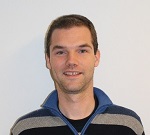Research course in translational radiation biology and oncology - PDF Version
8-11 November 2020, Online
Perspective of early-stage researchers
The research course in translational radiation biology and oncology was organised online, as has become the norm during this drastic change to our lives, from 8-11 November 2020. This seemed to be a successful strategy, as 71 people from 20 countries were registered for the course; never had so many people participated in this course.
Early-stage researchers (ESRs) who are part of the Marie Skłodowska-Curie Actions international network for training and innovation in therapeutic radiation (THERADNET) (www.theradnet.eu) were recommended to participate in this course. Their impressions are summarised in this newsletter.
Although the majority of the ESRs found it a pity that the course had to be organised online, they really appreciated all the efforts that the faculty made to create an interesting and interactive course that was enriching not only for their general knowledge in radiobiology, but also for their PhD projects in particular. The different aspects of radiobiology were covered within the course, and possible alternative approaches as co-treatments were highlighted. The topics were addressed from different angles that combined a good mix of basic science and translational research with clinical perspectives.
More importantly, the ESRs felt that several emerging subjects were discussed in clear and concise presentations. The most interesting topics that were addressed during the course were the hallmarks of cancer and their relationship with the 5Rs of radiotherapy (repair, repopulation, redistribution, reoxygenation and radiosensitivity), the tumour microenvironment, radioimmunology and metabolism. The tutorials, which aimed to apply directly and revise the information that had been supplied during the previous day, were considered very useful - although some participants found that these tutorials crowded the schedule.
Several important take-home messages emerged:
- A close collaboration between physics, physicians and biologists is fundamental to enable personalised patient treatment that leads to better outcomes.
- A big gap still exists between research and clinical translation.
- It is fun to struggle all together with a more difficult paper during a journal club, but having one of the co-authors on board makes it a lot easier.
- Online courses are only the next best thing, but a good faculty with experts and ambience helps a lot!
- Marie-Catherine Vozenin and her dogs seem to have played an important role in immunology.
- In other words, this is a good course, but we would prefer to attend in person in future.
Written on behalf of THERADNET ESRs Anouk Sesink (Institut Curie, Paris), Claire Beckers and Marvin Kreuzer (University of Zurich, Switzerland), Irene Bocci, Safa Larafa and Razan Hessenow (University of Essen, Germany), Anaís Sanchez Castillo and Èlia Prades Sagarra (University of Maastricht, Germany), Rocio Matesanz Sanchez (University of Dresden, Germany), and Justin Rondeau and Mona Shahin (University Catholique Louvain, Belgium).

Ludwig Dubois
Department of Precision Medicine
Maastricht University
Maastricht, The Netherlands